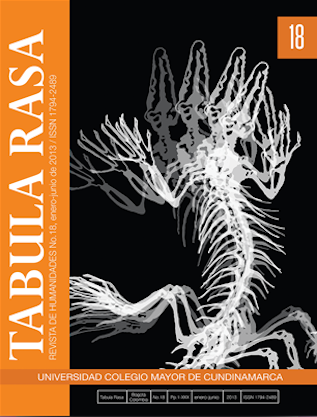Racismo, democracia racial, mestizaje y relaciones de sexo/género
Racism, racial democracy, mestizaje and sex/gender relations
Mostrar biografía de los autores
Las ideologías y prácticas latinoamericanas de mestizaje contienen dentro de sí la dinámica de la igualdad y la diferencia y de la democracia racial y el racismo al mismo tiempo. Aquí se explora cómo esta coexistencia simultánea opera en gran parte mediante complejos enmarañamientos de sexualidad, género y raza/etnicidad, que tienen lugar en el ámbito del cuerpo y de la familia así como de la nación. Esto se analiza mediante varios ejemplos concretos de diferentes periodos históricos y regiones de Latinoamérica. Se termina con un breve examen de los procesos de formación de las subjetividades, en los que las relaciones ser-otro, o en términos de Bhabha, la «Otredad del Yo», asumen una forma particular que permita la coexistencia normalizada de prácticas ciudadanas, de convivialidad democrática y racistas antidemocráticas.
Visitas del artículo 447 | Visitas PDF 311
Descargas
American popular dance. Albuquerque: University of New Mexico Press.
Clarke, Cheryl. 2010. But Some of Us Are Brave and the transformation of the academy: transformation? Signs: Journal of Women in Culture and Society 35 (4):779-788.
Collins, Patricia Hill. 2000. Black feminist thought: knowledge, consciousness and the politics of empowerment. 2a. ed. Nueva York: Routledge.
Crenshaw, Kimberlé. 1991. Mapping the margins: intersectionality, identity politics, and violence against women of color. Stanford Law Review 43 (6):1241-1299.
De la Cadena, Marisol. 2000. Indigenous mestizos: the politics of race and culture in Cuzco, 1919-1991. Durham: Duke University Press.
Deleuze, Gilles y Félix Guattari. 1983. Anti-Oedipus: capitalism and schizophrenia. Traducido por Robert Hurley, Mark Seem and Helen R. Lane. Minneapolis: University of Minnesota Press.
Edmonds, Alexander. 2007. Triumphant miscegenation: reflections on beauty and race in Brazil. Journal of Intercultural Studies 28 (1):83 - 97.
Engerman, Stanley L., y Kenneth L. Sokoloff. 2005. The evolution of suffrage institutions in the New World. Journal of Economic History 65 (4):891-921.
Fanon, Frantz. 1986 [1952]. Black skin, white masks. Londres: Pluto Press.
Fernandez, Nadine T. 1996. The color of love: young interracial couples in Cuba. Latin American Perspectives 23 (1):99-117.
Findlay, Eileen J. Suárez. 1998. Imposing decency: the politics of sexuality and race in Puerto Rico, 1870-1920. Durham, NC: Duke University Press.
Foucault, Michel. 1998 [1979]. The will to knowledge. The history of sexuality: Volume 1. Traducido por Robert Hurley. Londres: Penguin Books.
French, Jan Hoffman. 2009. Legalizing identities: becoming black or Indian in Brazil’s northeast. Chapel Hill: University of North Carolina Press.
Fry, Peter. 1995-6. O que a Cinderela Negra tem a dizer sobre a “politica racial” no Brasil. Revista USP 28:122-135.
Fry, Peter. 2000. Politics, nationality, and the meanings of ‘race’ in Brazil. Daedalus 129 (2):83-118.
Gill, Lesley. 1994. Precarious dependencies: gender, class, and domestic service in Bolivia. Nueva York: Columbia University Press.
Goldberg, David Theo. 1993. Racist culture: philosophy and the politics of meaning. Oxford: Blackwell.
Goldstein, Donna M. 2003. Laughter out of place: race, class, violence and sexuality in a Rio shantytown. Berkeley: University of California Press.
Goody, Jack. 1976. Production and reproduction: a comparative study of the domestic domain. Cambridge: Cambridge University Press.
Gutiérrez, Ramón. 1991. When Jesus came, the corn mothers went away: marriage, sexuality and power in New Mexico, 1500-1846. Stanford: Stanford University Press.




